Anatoly Karpov
1951 -
|
|
Stats: +975 -235 =1304
|
|
 |
# Games Played |
2514 |
 |
| % Games Won |
39% |
 |
| Excels in Chaos |
24 |
 |
| Avoids Time Trouble |
21 |
 |
| Combativeness |
10 |
 |
| Skill Rating |
2829 |
 |
|
Karpov was the official world champion from 1975 to 1985 when he was defeated by Garry Kasparov. He played three matches against Kasparov for the title from 1986 to 1990, losing each narrowly, before becoming FIDE World Champion once again after Kasparov broke away from FIDE in 1993. He successfully defended his title against Gata Kamsky in 1996 and Viswanathan Anand in 1998. In 1999 Karpov resigned his title in protest against FIDE's new world championship rules. For his decades-long standing among the world's elite, Karpov is considered by many to be one of the greatest players of all time.
View Games Profile
|
|
Bobby Fischer
1943 - 2008
|
|
Stats: +419 -86 =246
|
|
 |
# Games Played |
751 |
 |
| % Games Won |
56% |
 |
| Excels in Chaos |
31 |
 |
| Avoids Time Trouble |
19 |
 |
| Combativeness |
23 |
 |
| Skill Rating |
2841 |
 |
|
In Reykjavik, Fischer won the Fischer-Spassky World Championship Match (1972) by 12½-8½ to become the 11th World Chess Champion. In 1975, Fischer forfeited his title after FIDE refused to meet his conditions for a World Championship match with Anatoly Karpov. He then vanished from the public eye for nearly 20 years.
Fischer won the US Championship all eight times he played, in each case by at least a point. In the US Championship 1963/64 he achieved the only perfect score (11-0) in the history of the tournament.
View Games Profile
|
|
Mikhail Botvinnik
1911 - 1995
|
|
Stats: +570 -139 =468
|
|
 |
# Games Played |
1177 |
 |
| % Games Won |
48% |
 |
| Excels in Chaos |
38 |
 |
| Avoids Time Trouble |
13 |
 |
| Combativeness |
18 |
 |
| Skill Rating |
2843 |
 |
|
Botvinnik won the 1st of his 6 USSR Championships in 1931; the other 5 victories were in 1933, 1939, 1944, 1945 and 1952. He also won the Leningrad tournament of 1934, the Absolute Soviet Championship in 1941, and the Sverdlovsk super tournament of 1943.
With the death of Alexander Alekhine in 1946, Botvinnik took part and won the FIDE World Championship in 1948 becoming the 6th World Champion.
Botvinnik then held the title, with two brief interruptions, for the next fifteen years, during which he played seven world championship matches.
View Games Profile
|
|
Vasily Smyslov
1921 - 2010
|
|
Stats: +911 -308 =1384
|
|
 |
# Games Played |
2603 |
 |
| % Games Won |
35% |
 |
| Excels in Chaos |
24 |
 |
| Avoids Time Trouble |
19 |
 |
| Combativeness |
9 |
 |
| Skill Rating |
2788 |
 |
|
Smyslov was awarded the Grandmaster title in 1941. He took his first win over Botvinnik at Moscow championship of 1943. Smyslov achieved first place in the 1949 & 1955. He won the Chigorin Memorial 1951. He won the Candidates Tournament at Amsterdam 1956. This paved the way for Smyslov to become the 7th World Champion when he defeated Mikhail Botvinnik in 1957. His reign was short-lived as Botvinnik regained the title a year later.
View Games Profile
|
|
Viktor Korchnoi
1931 - 2016
|
|
Stats: +1717 -683 =1759
|
|
 |
# Games Played |
4159 |
 |
| % Games Won |
41% |
 |
| Excels in Chaos |
26 |
 |
| Avoids Time Trouble |
20 |
 |
| Combativeness |
16 |
 |
| Skill Rating |
2789 |
 |
|
Korchnoi was a candidate for the World Championship on ten occasions. Korchnoi played three matches against Anatoly Karpov. In 1974, he lost the Candidates final to Karpov, who was declared world champion in 1975 when Bobby Fischer refused to defend his title. He then won two consecutive Candidates cycles to qualify for World Championship matches with Karpov in 1978 and 1981, losing both.
View Games Profile
|
|
Tigran Petrosian
1929 - 1984
|
|
Stats: +697 -159 =1072
|
|
 |
# Games Played |
1928 |
 |
| % Games Won |
36% |
 |
| Excels in Chaos |
24 |
 |
| Avoids Time Trouble |
17 |
 |
| Combativeness |
7 |
 |
| Skill Rating |
2782 |
 |
|
Petrosian was a Candidate for the World Championship on eight occasions. He won the World Championship in 1963 (against Mikhail Botvinnik), successfully defended it in 1966 (against Boris Spassky), and lost it in 1969 (to Spassky). Thus he was the defending World Champion or a World Championship Candidate in ten consecutive three-year cycles.
Petrosian was nicknamed "Iron Tigran" due to his almost impenetrable defensive playing style, which emphasised safety above all else.
View Games Profile
|
|
Mikhail Tal
1936 - 1992
|
|
Stats: +1117 -297 =1302
|
|
 |
# Games Played |
2716 |
 |
| % Games Won |
41% |
 |
| Excels in Chaos |
36 |
 |
| Avoids Time Trouble |
17 |
 |
| Combativeness |
12 |
 |
| Skill Rating |
2773 |
 |
|
Tal is widely regarded as a creative genius and the best attacking player of all time, he played in a daring, combinatorial style. His play was known above all for improvisation and unpredictability. Every game, he once said, was as inimitable and invaluable as a poem. He was often called "The magician from Riga". He also holds the records for both the first and second longest unbeaten streaks in competitive chess history.
The Mikhail Tal Memorial tournament has been held in Moscow annually since 2006 to honour Tal's memory.
View Games Profile
|
|
Paul Keres
1916 - 1975
|
|
Stats: +1033 -208 =817
|
|
 |
# Games Played |
2058 |
 |
| % Games Won |
50% |
 |
| Excels in Chaos |
45 |
 |
| Avoids Time Trouble |
21 |
 |
| Combativeness |
18 |
 |
| Skill Rating |
2766 |
 |
|
Keres narrowly missed a chance at a world championship match on five occasions. He won the 1938 AVRO tournament, which led to negotiations for a title match against champion Alexander Alekhine, but the match never took place due to World War II. After the war Keres was runner-up in the Candidates' Tournament on four consecutive occasions.
Due to these and other strong results, many chess historians consider Keres along with Viktor Korchnoi the strongest player never to become world champion. He was nicknamed "Paul the Second", "The Eternal Second" and "The Crown Prince of Chess".
View Games Profile
|
|
Boris Spassky
1937 -
|
|
Stats: +771 -211 =1264
|
|
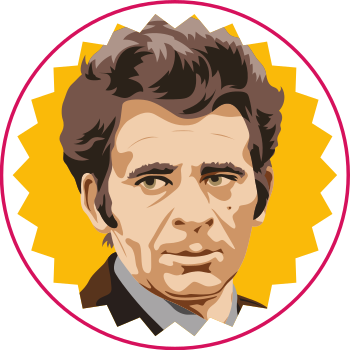 |
# Games Played |
2246 |
 |
| % Games Won |
34% |
 |
| Excels in Chaos |
33 |
 |
| Avoids Time Trouble |
20 |
 |
| Combativeness |
7 |
 |
| Skill Rating |
2761 |
 |
|
Spassky won the Soviet Chess Championship twice outright (1961, 1973). He was a World Chess Championship candidate on seven occasions (1956, 1965, 1968, 1974, 1977, 1980, and 1985).
Spassky defeated Tigran Petrosian in 1969 to become World Champion, then lost the title in the Fischer–Spassky match in 1972.
View Games Profile
|
|
David Bronstein
1924 - 2006
|
|
Stats: +822 -306 =1005
|
|
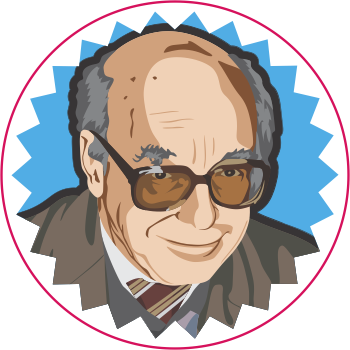 |
# Games Played |
2133 |
 |
| % Games Won |
39% |
 |
| Excels in Chaos |
19 |
 |
| Avoids Time Trouble |
19 |
 |
| Combativeness |
13 |
 |
| Skill Rating |
2758 |
 |
|
David Bronstein narrowly missed becoming World Chess Champion in 1951 against Mikhail Botvinnik. Bronstein was one of the world's strongest players from the mid-1940s into the mid-1970s, and was described by his peers as a creative genius and master of tactics.
View Games Profile
|
|
Miguel Najdorf
1910 - 1997
|
|
Stats: +694 -207 =627
|
|
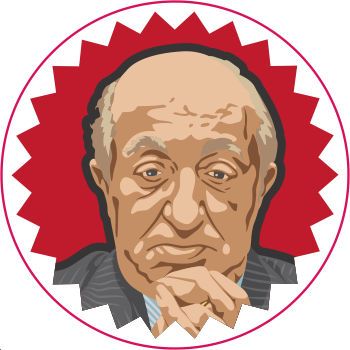 |
# Games Played |
1528 |
 |
| % Games Won |
45% |
 |
| Excels in Chaos |
39 |
 |
| Avoids Time Trouble |
11 |
 |
| Combativeness |
17 |
 |
| Skill Rating |
2765 |
 |
|
Najdorf won 52 international tournaments; he won the Argentine chess championship eight times; he repeatedly headed the Argentine national chess team, and in 1948 he was considered one of the world's 10 best players.
Najdorf excelled in playing blindfold chess: he broke the world record twice, by playing blindfold 40 games in Rosario, 1943, and 45 in São Paulo, 1947, becoming the world blindfold chess champion.
View Games Profile
|
|
Samuel Reshevsky
1911 - 1992
|
|
Stats: +555 -214 =660
|
|
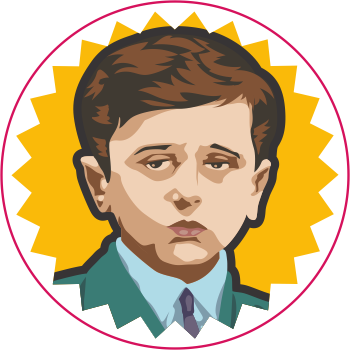 |
# Games Played |
1429 |
 |
| % Games Won |
39% |
 |
| Excels in Chaos |
23 |
 |
| Avoids Time Trouble |
21 |
 |
| Combativeness |
14 |
 |
| Skill Rating |
2769 |
 |
|
"Sammy" Reshevsky was a famous chess prodigy and later a leading American chess grandmaster. He was a strong contender for the World Chess Championship from the mid-1930s to the mid-1960s. He was an eight-time winner of the U.S. Chess Championship. An outstanding match player throughout his career, Reshevsky excelled at positional play, and could be a brilliant tactician when required.
View Games Profile
|
|
Lev Polugaevsky
1934 - 1995
|
|
Stats: +694 -250 =962
|
|
 |
# Games Played |
1906 |
 |
| % Games Won |
36% |
 |
| Excels in Chaos |
26 |
 |
| Avoids Time Trouble |
10 |
 |
| Combativeness |
11 |
 |
| Skill Rating |
2745 |
 |
|
A frequent contender for the world chess championship, although Polugaevsky he never achieved that title. He was one of the strongest players in the world from the late 1960s until the early 1980s, as well as a distinguished author and opening theorist whose contributions in this field remain important to the present day.
View Games Profile
|
|
Alexander Beliavsky
1953 -
|
|
Stats: +742 -427 =1005
|
|
 |
# Games Played |
2174 |
 |
| % Games Won |
34% |
 |
| Excels in Chaos |
25 |
 |
| Avoids Time Trouble |
19 |
 |
| Combativeness |
14 |
 |
| Skill Rating |
2747 |
 |
|
Beliavsky won the World Junior Chess Championship in 1973 and the USSR Chess Championship four times (in 1974, 1980, 1987 and 1990).
In the 1982–84 World Chess Championship cycle, Beliavsky qualified for the Candidates Tournament once, losing to eventual winner Garry Kasparov in the quarterfinals of the 1983 Candidates matches.
View Games Profile
|
|
Efim Geller
1925 - 1998
|
|
Stats: +807 -349 =1091
|
|
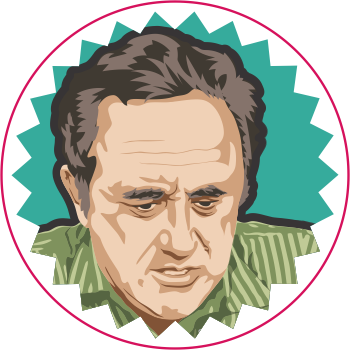 |
# Games Played |
2247 |
 |
| % Games Won |
36% |
 |
| Excels in Chaos |
23 |
 |
| Avoids Time Trouble |
6 |
 |
| Combativeness |
12 |
 |
| Skill Rating |
2747 |
 |
|
Geller was among the best ten players in the world for around twenty years. He won the Soviet Championship twice (in 1955 and 1979) and was a Candidate for the World Championship on six occasions. He won four Ukrainian Championship titles and shared first in the 1991 World Seniors' Championship, winning the title outright in 1992.
View Games Profile
|
|
Lajos Portisch
1937 -
|
|
Stats: +942 -415 =1377
|
|
 |
# Games Played |
2734 |
 |
| % Games Won |
34% |
 |
| Excels in Chaos |
26 |
 |
| Avoids Time Trouble |
14 |
 |
| Combativeness |
11 |
 |
| Skill Rating |
2742 |
 |
|
One of the strongest non-Soviet players from the early 1960s into the late 1980s, Portisch participated in twelve consecutive Interzonals from 1962 through 1993, qualifying for the World Chess Championship Candidates' cycle a total of eight times. He either shared the title or won the Hungarian Chess Championships outright a total of eight times.
Portisch had a positional style earned him the nickname, the "Hungarian Botvinnik".
View Games Profile
|
|
Leonid Stein
1934 - 1973
|
|
Stats: +280 -81 =338
|
|
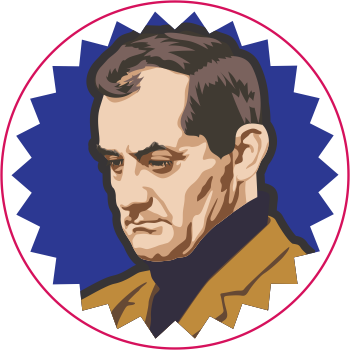 |
# Games Played |
699 |
 |
| % Games Won |
40% |
 |
| Excels in Chaos |
38 |
 |
| Avoids Time Trouble |
15 |
 |
| Combativeness |
12 |
 |
| Skill Rating |
2741 |
 |
|
Stein won three USSR Chess Championships in the 1960s (1963, 1965, and 1966), and was among the world's top ten players during that era.
Stein's creative style was greatly influenced by Chigorin and Alekhine. He was a highly intuitive, natural player. He was considered to be a brilliant attacking genius, but nevertheless played very sound chess, being less willing than Tal to complicate with unforeseeable results. He excelled with Black in sharp variations such as the King's Indian Defence, the Grünfeld Defence, and the Sicilian Defence.
View Games Profile
|
|
Isaak Boleslavsky
1919 - 1977
|
|
Stats: +317 -91 =408
|
|
 |
# Games Played |
816 |
 |
| % Games Won |
39% |
 |
| Excels in Chaos |
33 |
 |
| Avoids Time Trouble |
16 |
 |
| Combativeness |
11 |
 |
| Skill Rating |
2736 |
 |
|
Boleslavsky qualified from the first-ever Interzonal at Saltsjöbaden 1948 into the Candidates Tournament two years later in Budapest. In the Candidates tournament—the winner of which would play a World Chess Championship match against Mikhail Botvinnik—he was the only undefeated player, and led for most of the tournament, but in the last round he was caught by Bronstein, who later won a playoff in Moscow (+3 −2 =9). This turned out to be Boleslavsky's last chance as a serious contender for the world championship.
View Games Profile
|
|
Bent Larsen
1935 - 2010
|
|
Stats: +202 -120 =266
|
|
 |
# Games Played |
588 |
 |
| % Games Won |
34% |
 |
| Excels in Chaos |
9 |
 |
| Avoids Time Trouble |
19 |
 |
| Combativeness |
14 |
 |
| Skill Rating |
2738 |
 |
|
Larsen was known for his imaginative and unorthodox style of play, and he was the first Western player to pose a serious challenge to the Soviet Union's dominance in chess. He is considered to be the strongest player born in Denmark and the strongest from Scandinavia until the emergence of Magnus Carlsen.
Larsen was a six time Danish Champion and a Candidate for the World Chess Championship on four occasions, reaching the semifinal three times. He had multiple wins over all seven World Champions who held the title from 1948 to 1985.
View Games Profile
|
|
Gideon Ståhlberg
1908 - 1967
|
|
Stats: +261 -168 =373
|
|
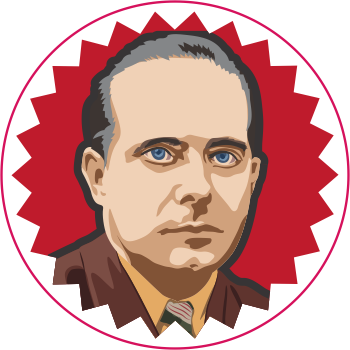 |
# Games Played |
802 |
 |
| % Games Won |
33% |
 |
| Excels in Chaos |
48 |
 |
| Avoids Time Trouble |
18 |
 |
| Combativeness |
13 |
 |
| Skill Rating |
2729 |
 |
|
Ståhlberg won the Swedish Chess Championship of 1927, became Nordic champion in 1929, and held it until 1939.
Ståhlberg came to fame when he won matches against star players Rudolf Spielmann and Aron Nimzowitsch in 1933 and 1934 respectively, and came third (after Alekhine) in Dresden 1936, and second (after Fine) in Stockholm 1937. In 1938 he drew a match against Keres.
View Games Profile
|
|
Salo Flohr
1908 - 1983
|
|
Stats: +357 -137 =465
|
|
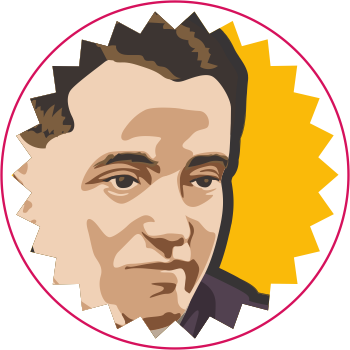 |
# Games Played |
959 |
 |
| % Games Won |
37% |
 |
| Excels in Chaos |
29 |
 |
| Avoids Time Trouble |
16 |
 |
| Combativeness |
12 |
 |
| Skill Rating |
2738 |
 |
|
Flohr's playing ability peaked in the mid-1930s, when he became one of the world's strongest players and a leading contender for the World Championship. He became champion of Czechoslovakia in 1933 and 1936
By 1937, FIDE had nominated him as the official candidate to play Alekhine for the World Championship. However, with World War II looming, it proved impossible for Flohr to raise the stake money in Czechoslovakia, so the plans were dropped. The next year, Flohr was one of the eight elite players invited to the great AVRO tournament of November 1938. He finished last, and this put an end to his chances of a World Championship match with Alekhine.
While AVRO was a strong tournament, Flohr's last-placed finish was no disgrace. His result may be explained by his difficult personal circumstances at the time. The German invasion of Czechoslovakia in 1938 had left Flohr, as a Polish-Ukrainian Jew, in grave personal danger.
View Games Profile
|
|
Alexander Kotov
1913 - 1981
|
|
Stats: +268 -156 =227
|
|
 |
# Games Played |
651 |
 |
| % Games Won |
41% |
 |
| Excels in Chaos |
14 |
 |
| Avoids Time Trouble |
25 |
 |
| Combativeness |
22 |
 |
| Skill Rating |
2734 |
 |
|
Kotov was a Soviet champion, a two-time world title Candidate, and a prolific chess author. Kotov served in high posts in the Soviet Chess Federation and most of his books were written during the period of Cold War between the US and the USSR. Therefore, his works tended to be rather critical of American players. Russian players, on the other hand, were presented and described in a particularly favorable light.
Notwithstanding Kotov's forays into the political realm, his books were insightful and informative and were written in a congenial style. He often made his points by citing first-hand stories of incidents involving famous grandmasters, most of whom he knew personally. Such entertaining and enlightening personal accounts helped to ensure that his books would remain popular among chess players of widely varying nationalities and playing strengths.
View Games Profile
|
|
Mark Taimanov
1926 -
|
|
Stats: +776 -318 =933
|
|
 |
# Games Played |
2027 |
 |
| % Games Won |
38% |
 |
| Excels in Chaos |
40 |
 |
| Avoids Time Trouble |
14 |
 |
| Combativeness |
14 |
 |
| Skill Rating |
2728 |
 |
|
From 1946 to 1956, Taimanov was among the world's top ten players. He played in 23 USSR Chess Championships (a record equalled by Efim Geller), tieing for first place twice.
He is probably best known for his 6–0 loss to Bobby Fischer in the 1971 World Championship Candidates match. However, few players have beaten six world champions (Botvinnik, Vasily Smyslov, Mikhail Tal, Tigran Petrosian, Spassky, and Anatoly Karpov) as Taimanov has.
He has opening variations named after him in the Sicilian Defence, Modern Benoni and Nimzo-Indian Defence. He has written books on two of his named variations, as well as an autobiographical best games collection.
View Games Profile
|
|
Ulf Andersson
1951 -
|
|
Stats: +569 -233 =1454
|
|
 |
# Games Played |
2256 |
 |
| % Games Won |
25% |
 |
| Excels in Chaos |
18 |
 |
| Avoids Time Trouble |
14 |
 |
| Combativeness |
1 |
 |
| Skill Rating |
2724 |
 |
|
At his peak, Andersson reached number four on the FIDE rating list. He drew a six-game match against former world champion Mikhail Tal in 1983, and played top board in the second USSR versus The Rest of The World Match in 1984. He led the Swedish Chess Olympiad Team during the 1970s and 1980s, and reached his best personal result in the 23rd Chess Olympiad in Buenos Aires 1978, where he finished in third place after Viktor Korchnoi and Orestes Rodríguez Vargas.
View Games Profile
|
|
Rafael Vaganian
1951 -
|
|
Stats: +650 -332 =834
|
|
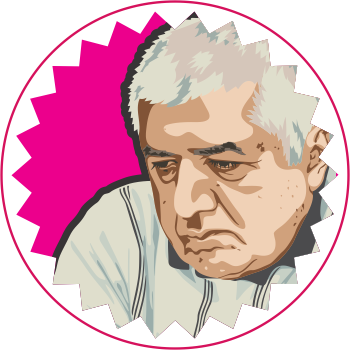 |
# Games Played |
1816 |
 |
| % Games Won |
36% |
 |
| Excels in Chaos |
25 |
 |
| Avoids Time Trouble |
25 |
 |
| Combativeness |
14 |
 |
| Skill Rating |
2736 |
 |
|
Vaganian achieved International Grandmaster status in 1971, at the unusually young age of 19, following an excellent result at the Vrnjacka Banja tournament the same year, where he took first place ahead of Leonid Stein and Ljubomir Ljubojević.
A cheerful and popular character on the grandmaster circuit, his tournament record is outstanding.
He was a world championship Candidate twice, losing out to Andrei Sokolov in 1986 and to Lajos Portisch in 1988.
View Games Profile
|
|
Svetozar Gligoric
1923 - 2012
|
|
Stats: +1129 -447 =1563
|
|
 |
# Games Played |
3139 |
 |
| % Games Won |
36% |
 |
| Excels in Chaos |
27 |
 |
| Avoids Time Trouble |
14 |
 |
| Combativeness |
11 |
 |
| Skill Rating |
2727 |
 |
|
Gligoric won the championship of Yugoslavia a record twelve times, and is considered the best player ever from Serbia.
In the 1950s and 1960s Gligorić was one of the top players in the world, and also among the world's most popular, owing to his globe-trotting tournament schedule and a particularly engaging personality, reflected in the title of his autobiography, I Play Against Pieces.
View Games Profile
|
|
Vlastimil Hort
1944 -
|
|
Stats: +985 -300 =1349
|
|
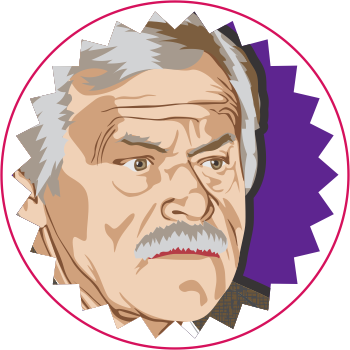 |
# Games Played |
2634 |
 |
| % Games Won |
37% |
 |
| Excels in Chaos |
27 |
 |
| Avoids Time Trouble |
25 |
 |
| Combativeness |
10 |
 |
| Skill Rating |
2712
|
 |
|
During the 1960s and 1970s he was one of the world's strongest players and reached the 1977–78 Candidates Tournament for the World Chess Championship, but never qualified for a competition for the actual title.
Hort was born in Kladno, Czechoslovakia and was a citizen of Czechoslovakia for the first part of his chess career, winning national championships in 1970, 1971, 1972, 1975, and 1977. He achieved the Grandmaster title in 1965 as a Czechoslovak citizen. While playing for Czechoslovakia he won a number of major tournaments (Hastings 1967–68, Skopje 1969, etc.), gaining recognition as one of the strongest non-Soviet players in the world. This led to him representing the "World" team in the great "USSR vs. Rest of the World" match of 1970, where he occupied fourth board and had a +1 score against the Soviet Grandmaster Lev Polugaevsky—in some regards his greatest result. He defected to the West after the 1985 Tunis Interzonal, moving to West Germany and winning the national championship of his new homeland in 1987, 1989, and 1991.
View Games Profile
|
|
Robert Hübner
1948 -
|
|
Stats: +465 -237 =846
|
|
 |
# Games Played |
1548 |
 |
| % Games Won |
30% |
 |
| Excels in Chaos |
25 |
 |
| Avoids Time Trouble |
20 |
 |
| Combativeness |
8 |
 |
| Skill Rating |
2716 |
 |
|
At eighteen, Hübner was joint winner of the West German Chess Championship. In 1975, he became one of the world's leading players, rising to third place in the FIDE world ranking list in 1980.
His progress was hampered by disputes and withdrawals at inopportune moments; he withdrew from his 1971 Candidates Match against Tigran Petrosian over a dispute about intolerable conditions, and again from a 1980 Candidates Match against Viktor Korchnoi. His fortune was dealt a particularly cruel blow at his 1983 Candidates Quarter Final match against Vasily Smyslov, when Smyslov refused to play tie-break rapid games (these were optional at the time and a noted strength of Hübner). The match was then awarded to Smyslov on the spin of a roulette wheel.
View Games Profile
|
|
Oleg Romanishin
1952 -
|
|
Stats: +715 -385 =974
|
|
 |
# Games Played |
2074 |
 |
| % Games Won |
34% |
 |
| Excels in Chaos |
32 |
 |
| Avoids Time Trouble |
20 |
 |
| Combativeness |
13 |
 |
| Skill Rating |
2706 |
 |
|
After winning the European Junior Championship in 1973, he became an International Master the same year. In 1974 he was a member of the victorious USSR team at the World Student Team Championship held in Teesside, England, where he scored the best result for board 4 (8/9).
The following year, he had a terrific result at the USSR Championship, sharing second place with Boris Gulko, Mikhail Tal and Rafael Vaganian, after Tigran Petrosian. In 1976, his Grandmaster title was ratified.
His chess playing style has been described as aggressive and this may be a result of the coaching he received as a junior.
View Games Profile
|
|
Zoltán Ribli
1951 -
|
|
Stats: +362 -158 =791
|
|
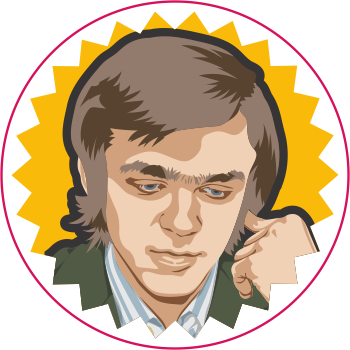 |
# Games Played |
1311 |
 |
| % Games Won |
28% |
 |
| Excels in Chaos |
26 |
 |
| Avoids Time Trouble |
25 |
 |
| Combativeness |
4 |
 |
| Skill Rating |
2711 |
 |
|
Ribli was twice a World Championship Candidate and three times Hungarian Champion.
At the peak of his career, Ribli was twice a Candidate for the World Championship, in 1984 and 1986. At London in 1984, he participated in the high profile match between USSR and the Rest of the World, defeating his Soviet counterpart, Rafael Vaganian by a narrow margin.
An almost ever-present member of the Hungarian Olympiad team between 1970 and 1994, he was playing second board when Hungary won the team gold medal in 1978. He also won team silver medals in 1970, 1972 and 1980.
View Games Profile
|
|
László Szabó
1917 - 1998
|
|
Stats: +677 -333 =749
|
|
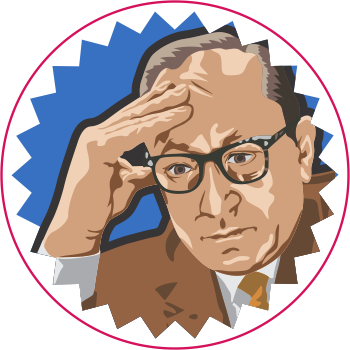 |
# Games Played |
1759 |
 |
| % Games Won |
38% |
 |
| Excels in Chaos |
12 |
 |
| Avoids Time Trouble |
25 |
 |
| Combativeness |
16 |
 |
| Skill Rating |
2709 |
 |
|
Szabó burst onto the international chess scene in 1935, at the age of 18, winning the first of Hungarian Championships, an international tournament in Tatatóváros, and was selected to represent his country at the 1935 Warsaw Olympiad. Onlookers at the Olympiad marvelled at the youngster's flair for attacking chess, a style that ran contrary to the dour, positional approach adopted by his countrymen. It is thought that the young Szabó studied under the tutelage of Géza Maróczy, then a patriarchal figure in Hungarian chess, having previously trained future world champions, Max Euwe and Vera Menchik.
Szabó was the best player in Hungary for nearly 20 years (eventually being succeeded by Lajos Portisch around 1963/64) and at the peak of his powers, one of the top 12 players in the world.
View Games Profile
|
|
Yuri Averbakh
1922 -
|
|
Stats: +201 -121 =390
|
|
 |
# Games Played |
712 |
 |
| % Games Won |
28% |
 |
| Excels in Chaos |
25 |
 |
| Avoids Time Trouble |
18 |
 |
| Combativeness |
8 |
 |
| Skill Rating |
2704 |
 |
|
As of 2018, Averbakh is the oldest living chess grandmaster. He was born in Kaluga, Russia. He was chairman of the USSR Chess Federation from 1973 to 1978.
His first major success was first place in the Moscow Championship of 1949. He became an International Grandmaster in 1952. In 1954 he won the USSR Chess Championship ahead of players including Mark Taimanov, Viktor Korchnoi, Tigran Petrosian, Efim Geller and Salo Flohr.
His solid style was difficult for many pure attackers to overcome.
View Games Profile
|
|
Ratmir Kholmov
1925 - 2006
|
|
Stats: +737 -340 =1189
|
|
 |
# Games Played |
2266 |
 |
| % Games Won |
33% |
 |
| Excels in Chaos |
25 |
 |
| Avoids Time Trouble |
13 |
 |
| Combativeness |
9 |
 |
| Skill Rating |
2703 |
 |
|
Kholmov won many international tournaments in Eastern Europe during his career, and tied for the Soviet Championship title in 1963, but lost the playoff. Kholmov was not well known in the West, since he never competed there during his career peak, being confined to events in socialist countries. His chess results were impressive, so this may have been for security reasons, as Kholmov had been a wartime sailor. But he was one of the strongest Soviet players from the mid-1950s well into the 1970s, and was ranked as high as No. 8 in the world during 1960/1961.
In 1963 he shared 1st–3rd, with Boris Spassky and Leonid Stein, at Leningrad at the 31st Soviet Chess Championships. Consequently, Kholmov is arguably the strongest player of the era ranging from the 1940s through the 1960s to never hold the title of Soviet Champion.
View Games Profile
|
|
Reuben Fine
1914 - 1993
|
|
Stats: +213 -61 =131
|
|
 |
# Games Played |
405 |
 |
| % Games Won |
53% |
 |
| Excels in Chaos |
39 |
 |
| Avoids Time Trouble |
17 |
 |
| Combativeness |
23 |
 |
| Skill Rating |
2745 |
 |
|
Reuben Fine was an American chess grandmaster, psychologist, university professor, and author of many books on both chess and psychology. He was one of the strongest chess players in the world from the late 1930s into the early 1950s.
Fine won five medals (four gold) in three chess Olympiads. Fine won the U.S. Open Chess Championship all seven times he entered (1932, 1933, 1934, 1935, 1939, 1940, 1941). He was the author of several chess books that are still popular today, including important books on the endgame, opening, and middlegame.
After World War II, Fine earned his doctorate in psychology from the University of Southern California. He served as a university professor, and wrote many successful books on psychology.
View Games Profile
|
|
Maia Chiburdanidze
1961 -
|
|
Stats: +469 -228 =674
|
|
 |
# Games Played |
1371 |
 |
| % Games Won |
34% |
 |
| Excels in Chaos |
15 |
 |
| Avoids Time Trouble |
19 |
 |
| Combativeness |
12 |
 |
| Skill Rating |
2618 |
 |
|
Chiburdanidze is the seventh (and then youngest) Women's World Chess Champion. She is the only chess player in history who has won nine Chess Olympiads.
Chiburdanidze finished 2nd in the Tbilisi Women's Interzonal (1976), thereby qualifying for the 1977 candidates matches. She advanced through to the Candidates Final, where she beat Alla Kushnir by 7½–6½ to set up a world title match in Pitsunda, Georgia, against Nona Gaprindashvili, the reigning women's world champion. Chiburdanidze defeated Gaprindashvili by 8½–6½.
View Games Profile
|
|
Nona Gaprindashvili
1941 -
|
|
Stats: +369 -226 =217
|
|
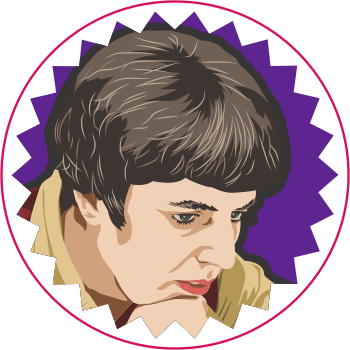 |
# Games Played |
812 |
 |
| % Games Won |
45% |
 |
| Excels in Chaos |
1 |
 |
| Avoids Time Trouble |
20 |
 |
| Combativeness |
27 |
 |
| Skill Rating |
2576 |
 |
|
Nona Gaprindashvili was the sixth women's world chess champion and first female Grandmaster. She was the strongest female player of her generation.
In 1961, aged 20, Gaprindashvili won the fourth women's Candidates Tournament, setting up a title match against Russian world champion Elisabeth Bykova. She won the match easily, with a final score of 9-2 (+7−0=4), and went on to defend her title successfully four times: three times against Alla Kushnir and once against fellow Georgian Nana Alexandria. She finally lost her crown in 1978 to another Georgian, 17-year-old Maia Chiburdanidze, by a score of 6½–8½ (+2−4=9).
View Games Profile
|
|